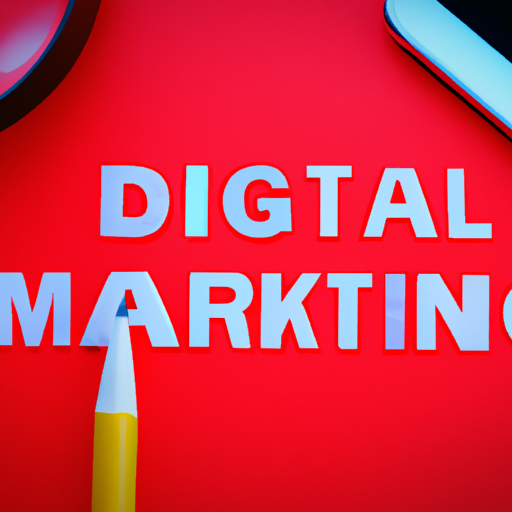Understanding The Basics: About Digital Marketing
Let’s talk about digital marketing.
If you’ve ever wondered what it is and why it’s important, you’re in the right place.
Digital marketing refers to all marketing efforts that use an electronic device or the internet.
Businesses leverage digital channels such as search engines, social media, email, and other websites to connect with current and prospective customers.
In this article, we’ll delve into the different facets of digital marketing and how you can use it to your advantage.
The Core Components Of Digital Marketing
Digital marketing isn’t a one-size-fits-all strategy; it encompasses a variety of methods tailored to reach specific audiences.
Let’s take a look at some of the core components:
Search Engine Marketing (SEM)
Search engine marketing is all about leveraging paid search ads to increase visibility on search engines like Google, Bing, and Yahoo!.
These ads appear at the top of the SERPs (Search Engine Results Pages) and are typically labeled as “sponsored” or “ad.”
SEM is highly effective for businesses looking to capture immediate high-intent traffic.
The beauty of SEM lies in its ability to target users based on keywords they’re actively searching for—this makes it an indispensable part of any comprehensive marketing strategy.
Social Media Marketing
Social media has evolved into a powerful tool for marketers.
Platforms like Facebook, Instagram, Twitter, LinkedIn, and TikTok offer various ways to engage with your audience through both organic posts and paid advertisements.
With over 3 billion social media users worldwide, it’s an opportunity you can’t afford to miss.
Creating engaging content that resonates with your target audience is key here.
Whether it’s through influencer partnerships or viral video campaigns, social media marketing can significantly amplify your brand’s reach and engagement levels.
Email Marketing: The Unsung Hero
Email marketing may seem old school compared to flashy social media campaigns or viral videos, but don’t underestimate its effectiveness.
Believe it or not, email remains one of the most profitable digital marketing channels.
With a well-crafted email campaign, you can nurture leads from awareness through consideration down to conversion.
Segmentation is crucial here; personalize your emails based on user behavior for better results.
For instance, if someone abandons their cart on your e-commerce site? Trigger an automated email reminding them about their pending purchase. This tactic alone can significantly boost your conversion rate!
The Role Of Content In Digital Marketing
When we talk about digital marketing, we can’t ignore content’s pivotal role.
Content is more than just blog posts; it’s any information consumers seek out online—including videos, podcasts, infographics, webinars—and yes—even memes!
Your content should aim at solving problems for your audience while subtly nudging them toward taking action—be it subscribing to your newsletter or making a purchase.
Real-life example? Think HubSpot—they’ve built an empire by offering valuable content that educates their audience about inbound marketing strategy, SEO best practices, and more!
SEO: The Lifeblood Of Organic Traffic
Search Engine Optimization (SEO) plays a significant role in driving organic traffic from search engines.
By optimizing various elements like meta descriptions, title tags—and even ensuring fast load times—you improve your chances of ranking higher on SERPs organically.
A strong SEO strategy involves keyword research (like our focus keyword “about digital marketing”), creating high-quality content around those keywords—and building backlinks from reputable sources!
It’s not just about gaming algorithms; it’s about providing genuine value so users find what they need when they land on your page!
PPC Advertising: Pay-Per-Click Efficiency
Pay-per-click advertising means you pay each time someone clicks on one of your ads—but where do these ads show up?
Google Ads allows placements at top positions within Google searches—or across its Display Network which spans millions of websites globally!
PPC offers instant visibility unlike SEO which takes time—but requires careful budgeting so costs don’t spiral out-of-control!
Effective PPC campaigns often incorporate A/B testing—comparing multiple versions—to determine what works best!
For small businesses aiming quick results within budget constraints? There are fewer better options than PPC advertising!

